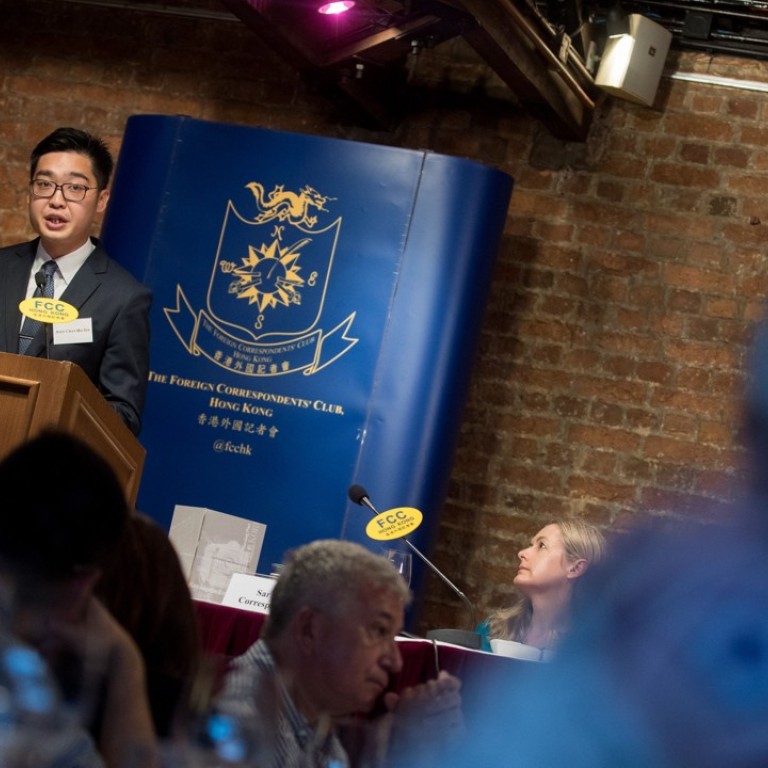
A national security law must reflect the special rights of Hong Kong
Freedoms under ‘one country, two systems’ will have to be taken into account following new Beijing call for anti-subversion law after Andy Chan speech
The Hong Kong Foreign Correspondents’ Club’s ignoring of warnings by Beijing and local officials against going ahead with a speech by independence activist Andy Chan Ho-tin was bound to have consequences. Statements of condemnation were issued even before the talk ended, but the gravity of the matter was heightened when Zhang Xiaoming, the director of the Hong Kong and Macau Affairs Office, accused the club of breaking the law and aiding separatism. He said the incident was a reminder of the city’s inadequacies when it came to protecting national security. Debate has swiftly shifted from being about freedom of expression and the press to the enacting of Article 23 anti-subversion legislation.
The club had defended its position by saying its speakers were chosen for their newsworthiness and that all sides should be given space to air their views for the sake of free speech and freedom of the press. Chan, the convenor of the Hong Kong National Party, said in his speech that Beijing was a threat to all free people and the only solution for Hong Kong was independence. He called on foreign powers such as the United States and Britain to step in and help. Authorities will never tolerate secessionist moves or foreign interference. The Office of the Commissioner of the Ministry of Foreign Affairs in Hong Kong accused the club of obstructing the rule of law, the local government used the term “totally unacceptable and deeply regrettable”. And Zhang said the behaviour of the FCC and Chan went far beyond the scope of freedom of expression, the press and assembly.
The “one country, two systems” model under which Hong Kong is governed provides for a wide range of freedoms and rights. Chan used that to full advantage in his talk and members of the audience quizzed him and tested his views. Outside the venue, rival demonstrations took place peacefully under the watchful eye of police. This was evidence of freedoms and rights being exercised within the law. That such views can be voiced openly and publicly highlights a key difference between Hong Kong’s system and that on the mainland. But Beijing has made it abundantly clear there are also red lines that can never be crossed and Article 1 of the Basic Law says Hong Kong is an inalienable part of China. Zhang has used Chan’s talk at the FCC to highlight a particular failing.
The city is constitutionally obliged to protect national security under Article 23. But doing so is a complex, difficult and sensitive process. Hong Kong has been given notice and it should consider starting work sooner or later. It is a matter for our city alone and it has to take the initiative to ensure laws can be shaped to balance protecting national security and the city’s special rights and freedoms under one country, two systems.

